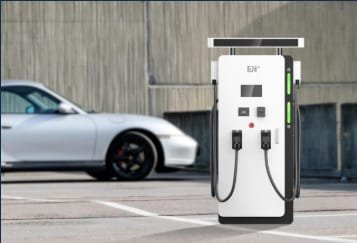Home Charging Solution
Charge with confidence from the comfort of your home with our intuitive EV charging solutions.

Software
Charge your EV with Evchargo App. Remotely track, operate, and maintain your EV with EN Plus Evchargo Cloud.

Robust
Structure

Evchargo
Cloud

Business
Growth

Extensive
Compatibility
Home EV Charging Applications
.jpg)
Single-family
Detached or semi-detached homes
.jpg)
Multi-family
Apartments, condos,and other MURBs
.jpg)
Mixed-use developments
Hotels and apartment buildings
Benefits of Our Home Charging Solution
Convenience:
Intelligence:
Energize Your Savings
Home EV Charging can help you save money on energy costs by optimizing your charging schedule to take advantage of lower electricity rates during off-peak hours. This can result in significant savings over time, especially for frequent EV users. Moreover, Home EV Charging can monitor your energy consumption and provide insights into how you can better manage your home energy usage.
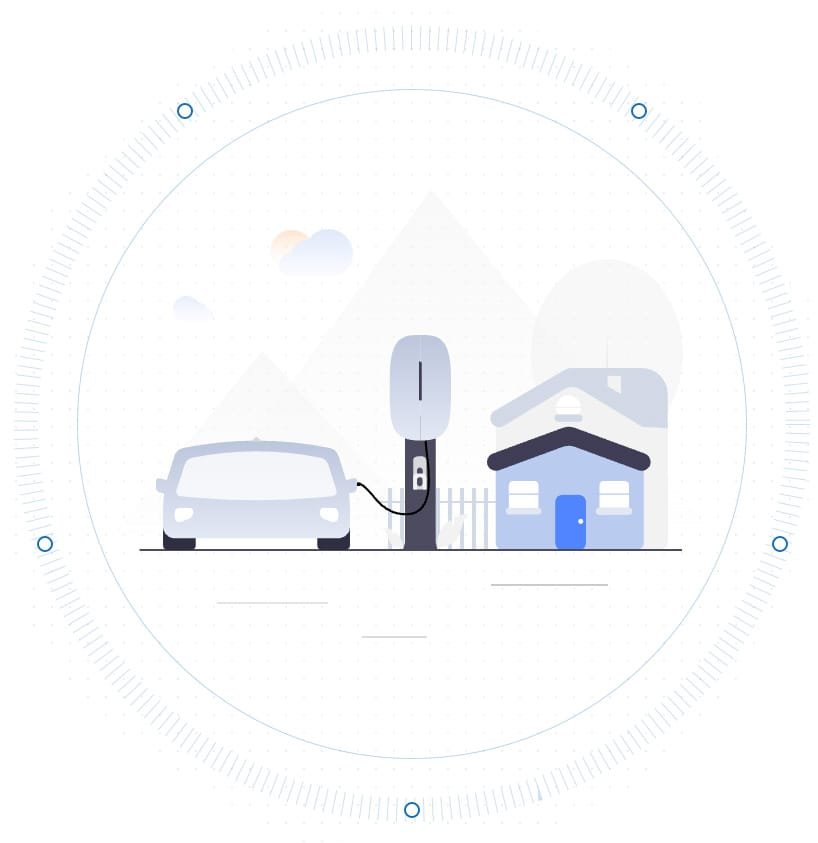
Energize Your Savings
Safe and Reliable
Smart Connectivity
Case Study
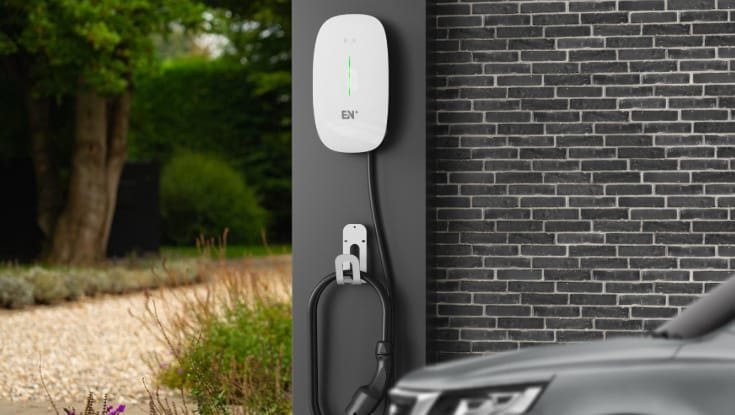
Want to Install a Public EV Charging Station? Here’s what you need to know
Introduction
Electric vehicles (EVs) are more popular than ever. In 2023, there were roughly 13.6 million EVs sold worldwide. In the United States, EV sales hit a new milestone, reaching over a million sales for the first time. With stricter environmental regulations, government investments in electrifying transportation, and growing consumer interest, there’s no sign that EV sales will slow down soon.
The International Energy Agency (IEA) estimates that EVs will represent more than 60 percent of global vehicle sales by 2030! Currently, charging infrastructures worldwide can’t support this emerging market’s demands. There’s a growing need for more EV public charging stations, presenting potentially lucrative opportunities for businesses.
Who Can Install Public EV Charging Stations?
The good news is there are many ways to get your foot in the door and become part of the growing EV charging stratosphere. Many types of businesses can install EV public charging stations. While it’s a considerable investment, there are two ways to enter the market.
The first is to become an owner-operator. Under the owner-operator model, your business would cover all capital costs, including charging hardware, installation, operations, maintenance, etc. This route is a great choice for companies capable of investing because it offers full control over operations and EV public charging prices.
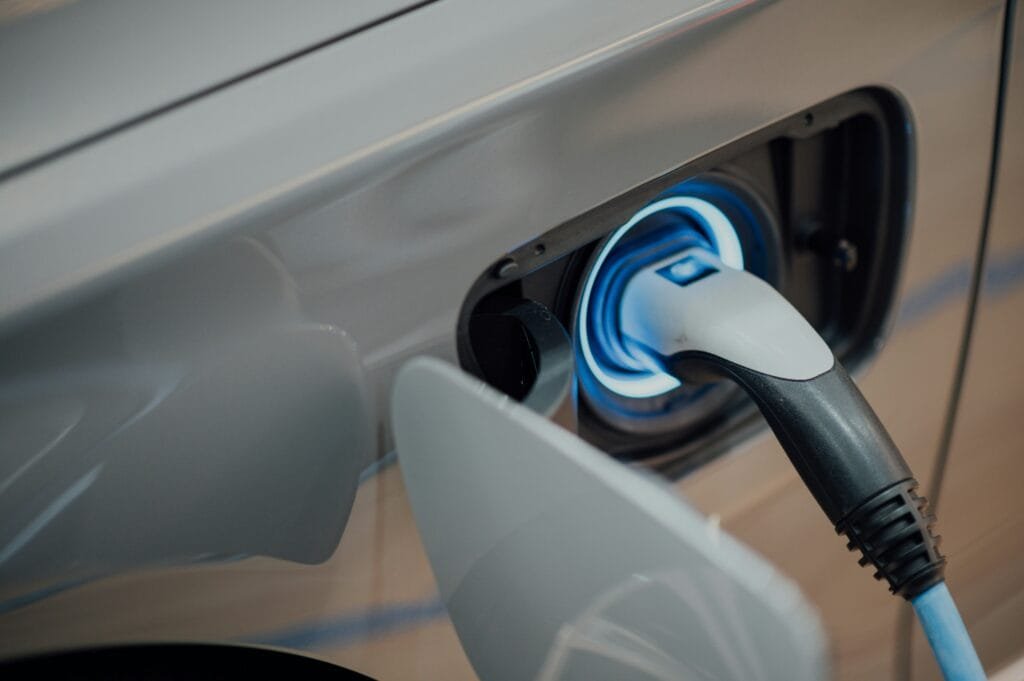
The second option is to be a solutions provider, also known as a third-party operator. In this scenario, your business would work with a charge point operator. You would provide space and cover the cost of hardware and installation. However, you benefit from third-party maintenance and operations, paying a fee to charge point operators for service. The benefit of being a third-party operator is lower upfront costs and the ability to tap into an existing network of customers.
Both options can be profitable. Furthermore, many businesses can provide EV charging solutions using existing space on their property. Good examples include grocery stores, car dealerships, office buildings, retail complexes, fuel stations and hotels.
Basic Requirements for Public EV Chargers
Starting a public EV charging business has many rules, regulations and requirements, like any other business venture. Requirements can vary from municipality to municipality, so doing your due diligence is important. Some rules could impact your EV public charging stations cost. Here’s a quick breakdown of the basic requirements you must meet.
Type of EV Chargers
The first thing to consider is the type of EV chargers you install. Current estimates show that roughly 80 per cent of EV charging occurs at home. Drivers typically charge their vehicles using the slowest Level 1 charger through a 120-volt AC plug.
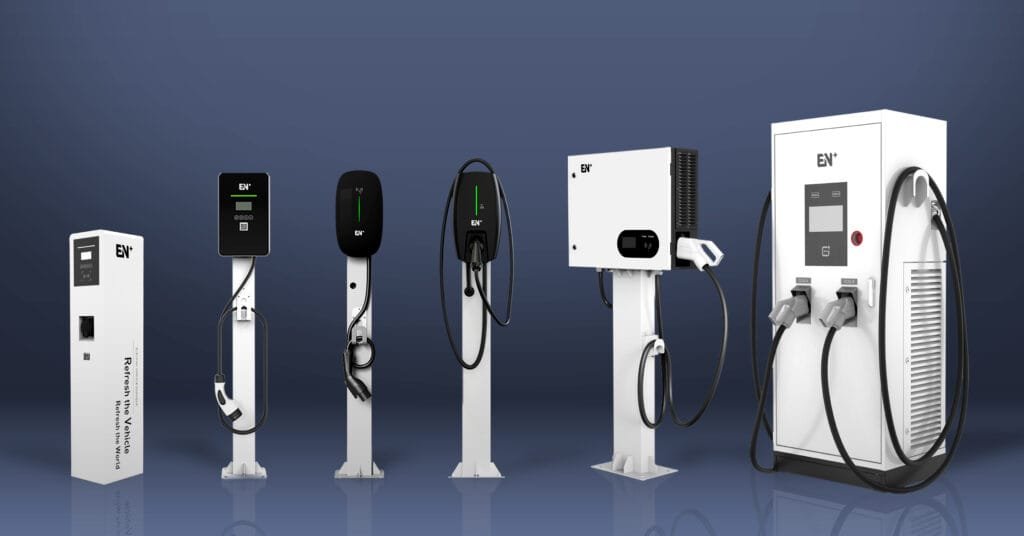
But you need higher-level chargers for EV public charging stations to maximise profitability.
Level 2 Charger
Level 2 chargers are the most commonly used worldwide and generally what you’d find in public EV charging stations. Level 2 equipment charges through 240 volts or 208 volts in commercial properties. These chargers have a 30-80 amps rating and can charge EVs significantly faster than residential Level 1 equipment.
Charging speeds can vary. In the United States, Level 2 chargers have a maximum rate of 19.2 kilowatts (kW). But in Europe, Level 2 charges can reach up to 22 kW. Charging rates can vary based on local codes. For example, in the United States, Level 2 chargers need a dedicated 40-amp circuit and must use at most 80 percent of the circuit’s capacity.
Level 3 Charger or Fast DC EV Charger
Level 3 chargers, or “DC Fast Chargers,” are the most efficient option. These chargers can provide up to 250 miles of range per hour of charging! Because they’re so efficient, you typically see these chargers at EV public charging stations on long stretches of highway. They’re necessary for long road trips where slower Level 1 and Level 2 charging is unfeasible.
These chargers use direct current, running on 480 or 1,000 volts.
EV public charging stations with Level 3 equipment deliver rates starting at 40 kW, but DC charging can go significantly higher, up to 400 kW. However, newer megawatt charging stations aim for up to 1,000 kW!
Level 3 chargers only amount to a little more than 20 percent of public EV charging points in the United States.
Infrastructure
Another thing to consider is the infrastructure required to support public EV charging. Charging points use considerable energy, and many say the growing demand for public charging could challenge local power grids. For that reason, businesses looking to build or install public chargers must invest in the right infrastructure.
Proper infrastructure ensures that charging points provide the right power output and voltage. Components could include feeder poles, dedicated high-amp circuits, power protection systems, and more. Depending on local code, infrastructure could significantly increase your EV public charging station cost.
Software
Software is necessary for both operators and consumers. EV drivers are often tech-savvy, expecting convenient and efficient mobile app experiences when charging. But that’s not all. As an operator, you must also invest in software to manage payments and subscriptions, metering, monitoring, data analysis, etc.
Fortunately, annual software costs typically don’t increase EV public charging stations cost too much. After initial setup, ongoing maintenance, cloud resources and other related expenses are relatively low.

Space
Finally, there are space requirements to meet. Depending on local regulations, you may need to meet strict zoning laws that dictate the amount of space required per charger. Typically, chargers can fit into existing parking spaces. However, some jurisdictions also have requirements for accessibility and mobility.
EV Public Charging Stations Installation Cost
Many factors will impact your total upfront EV public charging stations cost. Details like location, the type of chargers used, how many charging stations you build, required infrastructure and more will greatly affect upfront costs. In the United States, you can expect to pay anywhere from $$43,000 to $$250,000 to open a new public EV charge point.
Fortunately, there are many ways to reduce costs. Many nations are investing heavily in improving the public EV infrastructure, forging relationships with utility providers and offering funding, subsidies and tax breaks to private companies looking to invest. Some are even providing tools to help businesses evaluate charging stations’ financial performance.
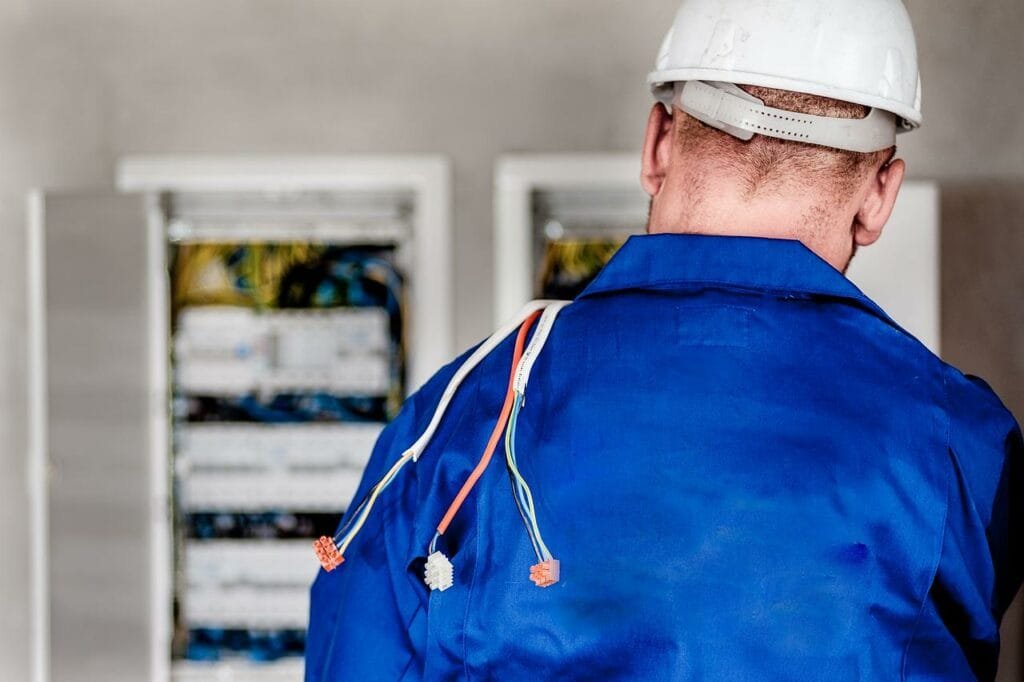
That support is crucial. Several case studies and established business models show that actions from both private and public sectors are vital to the success of EV charging networks and play an integral role in reducing the total EV public charging stations cost.
Legal and Regulatory Requirements for Public EV Charging Stations
Several regulations exist for public EV charging businesses. This market is still relatively new, and its reliance on regional electrical infrastructure forces governments to get involved. Fortunately, most are eager to help companies enter the market to expand options for consumers.
Before you install a public station, do your due diligence and comply with all regulatory requirements. That includes zoning laws, pulling permits when necessary and more. Regulatory considerations vary widely from one region to the next.

Compliance isn’t optional. Failing to meet all requirements could lead to steep fines and potential legal action. It’s also important to comply with all safety and accessibility regulations to avoid liability issues.
Potential Profitability of EV Public Charging Stations
Despite the many factors that can increase the upfront EV public charging stations cost, it’s still a lucrative endeavour. Businesses looking to install stations for EV charging benefit from increased exposure, more on-site sales due to dwell time and more. But charging stations can also be a valuable source of revenue on their own.
There are many ways to capitalise on EV charging. The most basic is to charge a usage fee. Businesses can adopt various pricing models, including offering monthly subscriptions or charging hourly rates. In the United States, charge point operators typically charge $0.20 to $0.25 per kWh on Level 2 equipment or $0.40 to $0.60 per kWh on Level 3 equipment. What you charge can change with local energy costs.
Another way to generate revenue is through advertising. You could advertise nearby businesses or use digital screens in the charging area to promote products and services. Those are just a few examples of revenue models.
While upfront costs can be daunting, the right business model could help you achieve a profit margin of 30 percent or more, allowing you to recoup your investment in only five years.
Conclusion
Installing EV public charging stations is a big investment, but it’s easier than some might seem. Whether you’re looking to build a standalone charging point outfitted with Level 3 chargers or install a handful of Level 2 stations at your existing business, it can be a great source of revenue. Businesses have much to gain in entering this emerging market, and there are many ways to join the field while maximizing revenue.
Let EN Plus be your partner in your new EV venture. EN Plus is a trusted manufacturer of EV charging equipment, serving as your go-to provider for EV charging business solutions. From high-output dual chargers in the Cubo Series to lightning-fast DC chargers in the Turbo Series, EN+ has the solutions you’re after.
Contact EN Plus today to learn more and discover high-quality chargers that benefit your business.
Investing in Business EV Charging: How to Start a Mobile EV Charging Business
Decades ago, seeing highways full of electric vehicles (EVs) seemed like a pipe dream. But with climate change concerns, stricter emissions regulations and growing public interest in sustainable practices are quickly making it a reality.
While recent studies show that most EV owners charge at home, there’s a growing demand for public charging stations to increase range and provide more travel flexibility. That demand presents more EV charging business opportunities for entrepreneurs.

Is EV Charging a Good Investment?
According to the International Energy Agency, there were some 2.7 million public charging points globally at the end of 2022. While that number’s grown, it’s still insufficient to meet increasing demand. Recent estimates show only one public charger is available for every 10 EVs on the road. That ratio is heavily imbalanced by countries with major investments in public charging infrastructure.
In many countries, there’s an even greater disparity between the number of active EVs and available charging points. Many experts say that the lack of public chargers is among the biggest barriers to EV adoption, particularly in countries like the United States.
Sales projections show that EVs could account for over two-thirds of all vehicle sales by 2030, pushing the global EV market to over 693 billion USD. Plug-in vehicle registrations are rising in Europe, and all-electric and hybrid-electric vehicles are continually breaking sales records yearly in the United States. Even oil-dependent countries in the Middle East are showing strides in EV adoption.
Those facts highlight great EV charging business opportunities. Projections show the value of the global EV charging market alone to reach more than 128 billion USD by 2023, matching the growth of EV adoption.
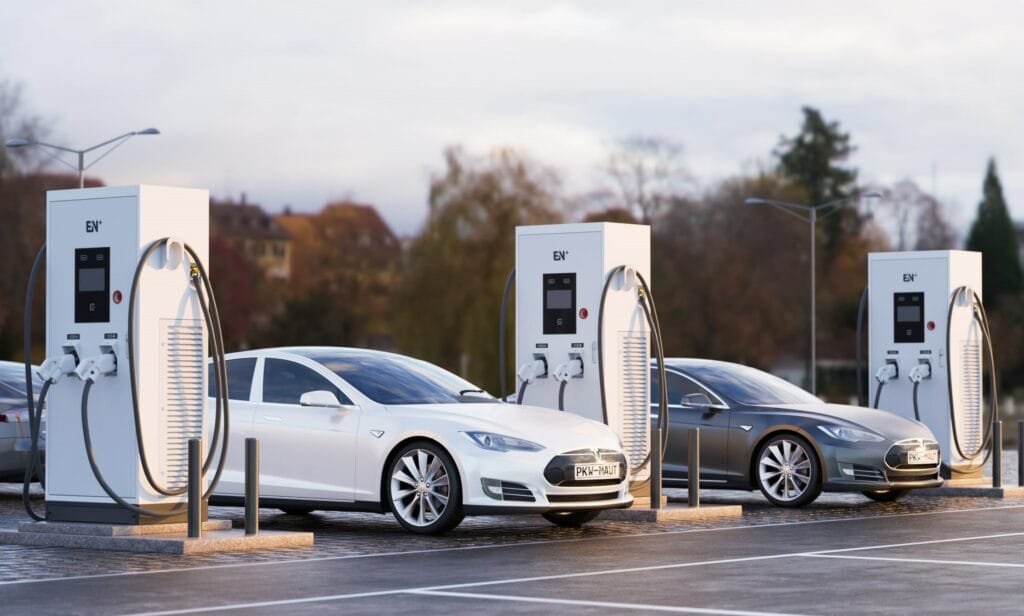
EV charging will continue to be profitable in the foreseeable future. But there’s no better time than now to invest. Countries around the world are investing heavily in public charging infrastructures. From European nations to countries in South America, the world is shifting to EVs.
In the United States, the federal government is pouring millions into expanding the public EV charging infrastructure, and companies that install a business EV charger can claim tax credits.
Learning how to start a mobile EV charging business can be lucrative, and getting your foot into the door now can help lead to greater success tomorrow.
How to Start a Mobile EV Charging Business
Whether you want to start a wallbox business or invest in mobile charging stations, there are plenty of ways to hit the ground running. But success hinges on many factors, and it’s important to do your due diligence when planning your business. Here’s a quick guide on how to start a mobile EV charging business.
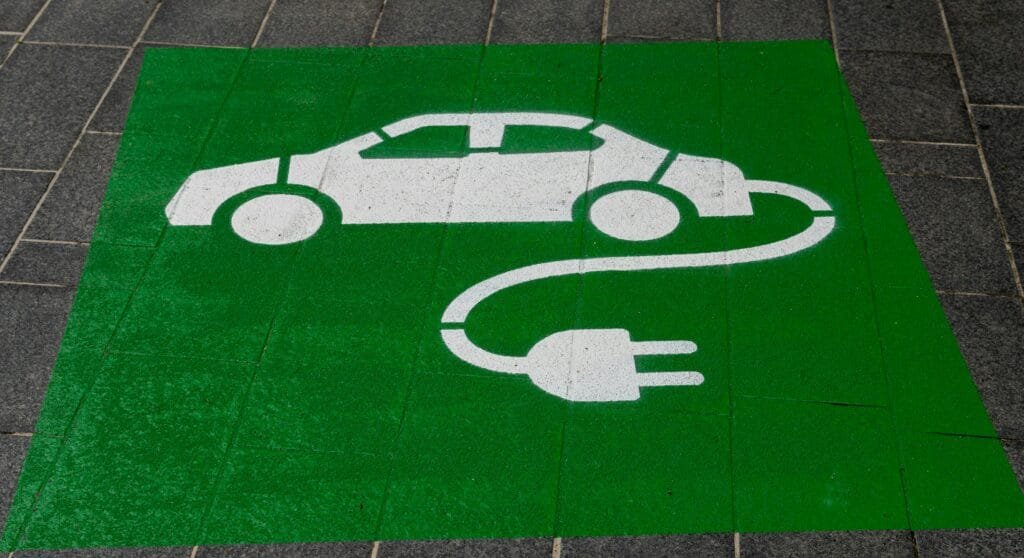
1.Conduct Market Research: The first step is to analyse the market. Market research is critical to the successful launch of any business, but it’s paramount for business EV charging. Despite worldwide growth, EV adoption is stronger in some areas than in others.
Research EV registration data, explore charging trends, identify opportunity zones and more. The key to successful business EV charging is understanding the market’s needs.
2.Choose a Location: Location is everything, and there’s no greater example of that sentiment than EV charging. A relatively weak charging infrastructure is one of the biggest challenges of EV adoption. While some parts of the world provide drivers with easy access to charging stations, drivers in other areas aren’t so lucky.
Poor infrastructure also limits travel range. One way to successfully enter the EV charging market is by choosing a strategic location for your wallbox business. Once again, do your due diligence and select high-impact locations that serve the needs of EV drivers.
3.Understand Regulatory Considerations: Compliance with all federal and local regulations is another hurdle to overcome. EV charging is still a relatively new venture, and regulatory considerations vary based on the location of your business. Other factors, such as zoning laws, non-utility classification and more come into play.
4. Develop a Business Plan: Once you understand the market and all regulatory details that apply to your business, you can develop a plan. What makes your business EV charger different? How will you charge customers? What’s your plan to make a profit? Those are all the details you must consider.
Develop a pricing model, determine how you’ll provide customer service, build a maintenance schedule for your chargers and more.
5. Secure Funding: Every new business needs funding, and EV charging is no different. Fortunately, governments worldwide are investing in charging infrastructures, providing ample ways to secure financing for a new business like this. More on funding soon.
6. Implement the Right Technology: Technology plays a substantial role in EV adoption and charging. Tech-savvy consumers are reportedly six times more likely to drive an EV, and modern vehicles have advanced features. You must implement the right technology to compete in the tech-focused charging landscape. That includes having a mobile app for real-time availability, payment processing, etc.
7. Market Your Business: EV charging maps are plentiful, and many governments maintain resources to help drivers find public charging points. But public outreach is still important. Let drivers know that a new station is available. Doing so can increase EV adoption in the area, leading to substantial growth moving forward.
Can EV Charging be Profitable?
Earning potential for your business EV charging venture depends on many factors. These include:
- Location
- Competition
- Charging technology
- Pricing models
- Utility costs
- Utilisation
There are also varying startup costs. Starting a wallbox business could be affordable if you have an existing property and code-compliant electrical infrastructure. But upfront costs could go into the tens of thousands if you don’t.
All that said, starting an EV charging business is typically quite profitable. The beauty of investing in business EV charger infrastructure is that it doesn’t have to be your primary source of revenue. There are plenty of opportunities to invest in standalone charging stations. But existing businesses can also add EV charging to their list of services, providing another source of reliable revenue.
What is the Profit Margin on EV Charging?
Profit margins vary, and it’s impossible to provide any concrete number. However, the typical profit margin for charging point operators is between 15 and 30 percent.
That’s a great profit margin; Revenue earned can help cover upfront investments in less than a decade.
Financing and Managing Your Mobile EV Charging Business
Before you can reap the reward of EV charging business opportunities, you must finance this venture. While securing funding can typically be overwhelming for new companies, the EV charging market is ripe with opportunity.

Of course, you could apply for business loans. Here’s where market research comes in handy. If you did your due diligence, you can present your findings and earning potential to show lenders that business EV charging ventures are worth pursuing.
You can also explore any federal loan programs. For example, the United States Department of Agriculture (USDA)has a loan program that can provide up to $1 million to businesses in rural communities to finance EV infrastructure.
Another option is to explore government grants. In the United States, countless federal and state-level grants are available to those looking to invest in EV infrastructure. Tax breaks are also available. The European Union also provides grants to individuals and businesses that go electric. The same goes for many South America, Asia and the Middle East countries. Grants and subsidies are plentiful, so do your research to understand what’s available to you.
Finally, you can secure funding from investors. EV charging can be lucrative, and many investors are taking the plunge. While federal funding drives EV infrastructure, surveys show a growing interest from private investors. Developing a great business plan could help you attract supporters who help fund your venture.
Challenges and Opportunities in EV Charging
Even with substantial earning potential and growth, there are many challenges to navigate.
One of the biggest is navigating changing technologies and standards. EVs are still in their infancy. Battery capacity and charging improvements make EVs more compelling to drivers, but there’s still room to grow.
Charging protocols and standards, in particular, are evolving. For example, some charging stations use Type 1 connectors while others use Type 2. Different AC and DC charger connectors exist worldwide.
There are efforts to standardise EV charging. In 2022, Tesla made its EV specs publicly available and announced it as the North American Standard.
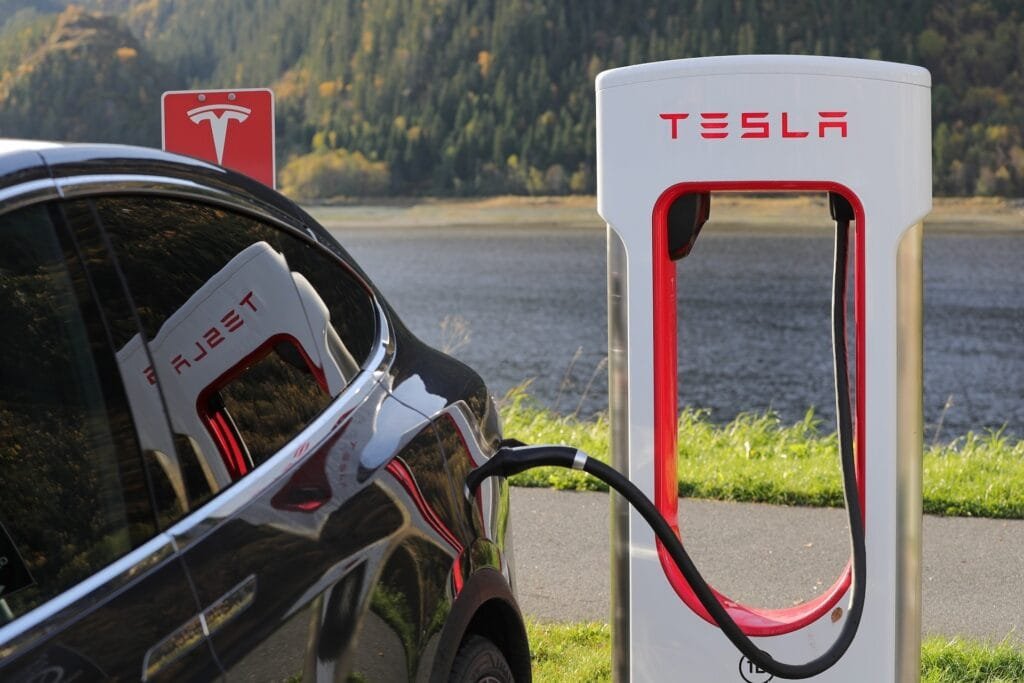
Market variability and competition also present challenges for business EV charging ventures. Because EV adoption is still relatively low compared to traditional internal combustion vehicles, there’s a degree of market variation in the future. Projects show EV adoption increasing, but there’s no way to guarantee market conditions moving forward.
Competition can also impact future profitability and success. As more drivers turn to EVs, newer competitors will inevitably arise. Of course, competition breeds innovation. It’s important to continue innovating and providing the best service possible for the rapidly expanding EV market.
Conclusion
Ultimately, EV charging business opportunities outweigh the potential challenges. EV is the way of the future, and there’s no better time than now to capitalise. Investing in the emerging market can generate generous revenue and help you join the EV revolution! The key is staying informed and being proactive about new opportunities and challenges while pushing the boundaries with new business innovations.
When you’re ready to invest in business EV charging, turn to EN Plus.
EN Plus is a leading manufacturer of EV chargers, offering numerous business solutions to entrepreneurs like you. Explore business solutions like the Corebox Series and Turbo Series of chargers. EN Plus provides future-proof solutions to increase business EV charger efficiency and maximise revenue. Call today to learn more and take the first steps in launching your EV charging business.
The ROI of EV Charging Stations for Businesses
Electric vehicles (EVs) are becoming more popular, which means the demand for EV charging stations is also increasing. If you own commercial property, adding EV charging stations can attract eco-conscious customers and generate additional revenue.
A Level 2 charging station costs around $6,000 to install and can recoup the investment in two years. Installing charging stations can also increase foot traffic, improve customer satisfaction, and give you a competitive advantage. If you’re curious about the ROI of charging stations, this quick guide will help you.

EV Charger Market: Growth and Potential
The electric vehicle market has been experiencing significant growth over the past years. According to research by GlobalData, the market is projected to grow at a rate of 15% each year between 2023 and 2025.
In the next decade, the rate of EV cars sold is expected to surpass 44 million. This creates increased potential for businesses to invest in EV charging stations.
The Benefits of EV Charging Stations for Businesses
Installing EV charging stations offers profound benefits for businesses. It enhances the company’s sustainability profile, thereby attracting eco-conscious customers and employees.
Also, providing EV charging can increase the time customers spend on the premises, which, in turn, can boost sales. For employees, access to EV charging stations is an added incentive, which can improve job satisfaction and retention.
Moreover, businesses may also qualify for government incentives or tax breaks related to green initiatives.
By integrating EV charging infrastructure into their operations, businesses position themselves as forward-thinking and environmentally responsible. This aligns with growing consumer preferences for sustainable practices and contributes to the broader adoption of electric vehicles.
How to Calculate the ROI of EV Charging Stations
Calculating the return on investment for an EV charging station is an important step in assessing the economic feasibility of this investment. To calculate the ROI, you need to use a simple formula:
ROI = (Total Revenue – Total Cost) / Total Cost x 100
Let’s break down each component:
Total Revenue: This includes all income from the charging station, like charging fees, advertising revenue, and other sources such as partnerships or sponsorships.
Total Cost: The charging station expenses include installation, operational, and maintenance and repair costs.
A positive ROI means profit, while a negative ROI means costs are higher than revenues. Long-term projections for costs and revenues are crucial, as initial years may have higher expenses and lower revenues.
Factors Impacting the ROI of Your EV Charging Station
To assess the financial viability and long-term benefits of investment in EV infrastructure, businesses need to understand the factors influencing EV charging stations’ ROI.
Tax Incentives and Rebates
Tax incentives and rebates are available for businesses looking to provide EV charging services. The IRS’ Alternative Fuel Vehicle Refueling Property Tax Credit in the United States offers a 30% credit on installation costs, capped at $100,000 per location as of 2023. This incentive lowers the financial barrier to entry and accelerates the return on investment.
In the United Kingdom, businesses can take advantage of the Workplace Charging Scheme (WCS). This voucher-based system contributes to the upfront costs of purchasing and installing EV charging stations.
UK businesses may also be eligible for enhanced capital allowances. This allows them to gain 100% tax relief in the first year on qualifying low-emission and electric vehicle charging equipment.
Installation and Operational Costs
Installation and operational costs play a crucial role in determining the ROI for EV charging stations. Let’s break down these costs:
Equipment and Installation Costs: Installing a Level 2 charger ranges from $1,300 to $2,800, including the equipment and installation. If you need three chargers, the cost could be $3,900 to $8,400. Other expenses may include building or parking lot renovations, permits, and related costs.
Networking Fees: Modern EV charging stations require smart capabilities such as payment processing, access control, and session management. Opting for software-enabled equipment is advisable for billing purposes, although some charging equipment may not require software. The annual software cost typically ranges from $100 to $300 per port.

Ongoing Maintenance: Regular maintenance ensures optimal uptime and reliability. This includes the upkeep of the equipment and site, contributing to ongoing operational costs.
Cost of Energy Sold: EV users’ energy cost varies based on location, time of use, and other factors. This directly impacts charging fees and revenue.
Operating Costs: Business-related expenses such as payroll and advertising are included in this category. The operating costs for EV charging stations are generally low.
Managing costs effectively is crucial to turning a profit in an EV charging station business. This means finding the right balance between the expenses of setting up and running the station, such as installation and operational costs, and the revenue generated from charging fees and other income sources, like advertising. High costs can significantly delay reaching the break-even point and starting to make a profit, so it’s important to be mindful of expenses.

Payment Structure
There are two different payment structures for you to consider. Both have benefits, but one may be more suited to your business’s specific needs.
Flat-fee Charging
Flat-fee charging is a pricing model that charges a uniform rate for a set amount of time. This pricing strategy works well for businesses and residential properties where customers are expected to park and charge for longer durations. It offers customers a consistent fee regardless of the energy consumed, making billing simple and convenient.
Metered Billing
Metered billing for EV charging is based on the amount of electricity consumed during charging, measured in kilowatt-hours. It’s a precise and fair way to bill customers for the energy they use.
This method suits locations where charging times are shorter or billing precision is necessary. This pay-per-use model ensures customers are billed directly for the energy their vehicle receives, making it an equitable solution for both quick charges and full recharges.
Are EV Charging Stations a Good Investment?
Investing in electric vehicle (EV) charging stations is more than just a sustainable move; it’s a strategic decision that can position businesses at the forefront of a growing market. As the adoption of EVs continues to surge, the demand for accessible charging solutions is increasing, making EV charging stations a profitable addition to any forward-thinking business model.
To capitalize on this opportunity, it’s essential to understand your customer base and location. Retail centers, office parks, and residential complexes can benefit significantly by providing EV charging as an amenity, enhancing customer satisfaction and potentially increasing dwell time and spending.

Moreover, integrating EV charging infrastructure can improve a company’s brand image, demonstrating a commitment to environmental stewardship and innovation. With available government incentives and the potential to generate additional revenue streams through charging fees and partnerships, the financial outlook for EV charging stations is compelling.
For businesses planning to embark on this journey, the key factors to consider include the electricity capacity of the site, the types of chargers that best suit your clientele, and the potential for future expansion. Partnering with reputable suppliers and leveraging smart charging solutions can optimize operations and improve user experience, making EV charging stations an investment in infrastructure, customer loyalty, and brand value.
Tips for Maximizing EV Charging Station ROI
To get the most out of EV charging stations, a strategic, data-driven approach is key. By leveraging location analytics, smart charging solutions, and charging station analytics, businesses can optimize revenue, enhance user experience, and identify expansion opportunities. Collaborating with EV manufacturers or local businesses can also drive more traffic to locations and create added value for users.
In addition, staying informed about government incentives and grants for EV infrastructure is crucial for offsetting initial costs and improving the financial outlook of the investment. By adopting these focused strategies, businesses can position themselves as leaders in the green economy, contributing to a sustainable future while ensuring a quick ROI.
Conclusion
The ROI of EV charging stations extends far beyond the immediate financial gains. As the EV market continues to expand, the demand for convenient, accessible charging options will surge, offering businesses a unique opportunity to capture new customers and foster loyalty among existing ones. For businesses ready to embark on this journey, EN Plus offers a comprehensive suite of EV charging solutions tailored to meet your specific needs.
Charging Your EV Anywhere: Exploring Non-Station Methods
The rise of electric vehicles (EVs) signals a shift in how we travel. Yet, for many, the challenge is not owning an EV but charging it. Especially for those living in apartments or places where installing EV charging stations is not possible, finding a solution is crucial.
In this article, we’ll discuss how electric vehicle owners can charge their cars without access to a personal charging station. This includes exploring alternative charging options and technologies that enable EV drivers to stay powered up, even without a private charging point at home. Whether it’s community charging hubs, portable chargers, or public charging networks, there are growing solutions for EV owners facing this dilemma.

Do You Need a Charging Station for Your Electric Car?
No, having a personal charging station for your electric car is unnecessary. While having one offers convenience, other options exist to charge an EV.
What is often referred to as Level 1 EV Charging allows you to use a regular 120-volt outlet at home to power your electric car. This lets you ‘trickle charge’ your vehicle and supplies a few miles of range per hour.
This is the slowest type of EV charging. It can take about 30 hours, depending on the size of your car’s battery and vehicle model. This should be sufficient for average drivers who only use their cars for short distances. Or if there is a public charging station near your workplace or home.
However, if Level 1 EV Charging is the only option for you, get help from a licensed electrician to ensure a dedicated circuit supports the power load.
How to Charge Your EV Without a Home Charger
With the EV market growing worldwide, options for charging without a personal home charger are expanding. This makes it easier for EV owners to find convenient and efficient ways to power up their vehicles even when they’re on the road.
As mentioned above, you can use a standard 120-volt socket to charge your car. EVs often come with a cable that can plug into these sockets without special equipment—much like a kitchen appliance. This method is straightforward but slow. It’s best suited for overnight charging or those who can afford to wait longer for their EV to charge.
However, the good news is there are publicly available chargers you can use to power up your electric vehicle more efficiently. Here are some of them:
Public Charging Stations
Widely available in cities and along major highways, public charging stations offer a quick and convenient way to charge. They range from Level 2 chargers, which are faster than your standard home outlet, to rapid DC chargers that can provide a significant charge in a short period. These stations are often found in parking lots, shopping centers, and public transport hubs.

Workplace Charging
Some companies provide charging facilities for their employees. This is a great option for charging your EV while at work, making it ready for your commute home.
Destination Charging
Many retail outlets, hotels, and restaurants now offer EV charging as a customer service. This means you can charge your car while shopping, dining, or staying overnight at a hotel. Destination chargers usually provide a slower Level 2 charge. This is perfect for topping up your battery while you’re engaged in other activities.
On-Street Charging
In urban areas, on-street charging is becoming more common. These can be standalone charging points or integrated into street furniture like lampposts. While they may not be as fast as dedicated charging stations, they are useful for city dwellers who park their cars on the street.
Community Charging Hubs
These are chargers shared among residents in a community, particularly in multi-unit dwellings without individual charging points.
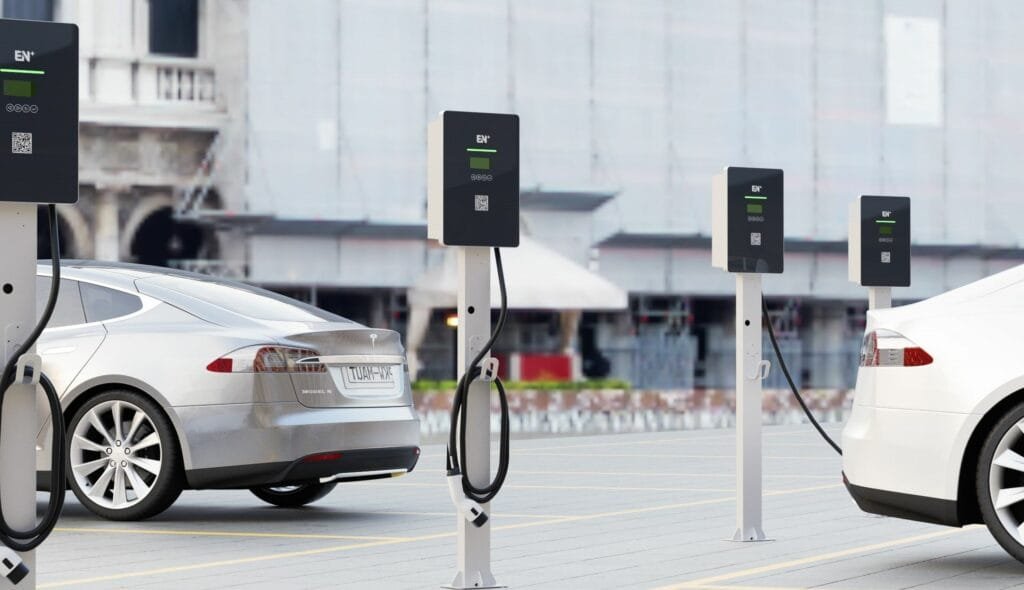
Rapid Charging Networks
For long-distance travel, rapid chargers are ideal. Located along highways, these chargers can provide a substantial amount of charge relatively quickly. Ideal for those going on road trips.
Safety Precautions for EV Charging in Public
Electric vehicles, while environmentally promising, come with unique safety considerations, especially when charging in public spaces. Here, we emphasize the importance of safety and provide guidelines for secure EV charging, mainly when relying on alternative methods away from home:
- Choose Reliable Stations – Pick reliable, well-maintained charging infrastructure, be it at work or in public areas. Quality gear, like what EN PLUS offers, with 9,210+ charging stations in 40 countries, minimizes the risk of malfunctions and electrical hazards. They provide a Cloud Smart charging system for real-time status updates, adaptable for home, business, and personalized charging needs.
- Mind Your Cables – Handle charging cables with care. Prevent kinks, knots, or tripping hazards in high-traffic areas. Properly secure cables to prevent damage and reduce the risk of electric shock.
- Inspect Equipment – Before plugging in, inspect charging equipment for visible damage or unusual wear. If issues arise, report them immediately and refrain from using the station.
- Follow Protocols – Adhere to recommended charging protocols. Avoid tampering with equipment or making unauthorized modifications to prevent safety hazards and damage.
- Know Emergency Procedures – Understand and communicate emergency procedures for your chosen charging infrastructure. Familiarize yourself with the safe disconnection of charging cables and handling any unforeseen situations.
- Protect Data – When using public charging stations, avoid untrusted or unknown connectors and charging equipment to prevent data theft or malware infiltration.
- Stay Alert While Charging – Keep a watchful eye during the charging process. This prevents cable theft and tampering and addresses any issues that may occur during the session.

EV Charging Station Cost: At Home vs Public Charging
Charging up your electric vehicle (EV) can be a wallet-friendly affair at home, but it might put a little dent in your budget when you go public.
At Home:
In the U.S., a Level 2 charging station costs most homeowners between $350 and $1,400 to buy and set up. The electricity expenses depend on your local utility rates, averaging around $3 to $8 for a full charge.
Generally, expect to pay $3 to $8 per top-off for your EV in the comfort of your garage. On the other hand, home charging in Europe typically falls between €10 to €20 per kWh. So, completely charging an 80 kWh battery, which gives around 300 miles of range, can be from €8 to €164.

In Public:
When it comes to public charging in the US, it’s pricier than home charging, with a range of about $12 to $16 per charge. At a Level 3 charging spot, you’ll gain an extra 100 miles of range in about 48 minutes. But it could cost you anywhere from $6.24 to $16.80, depending on your location.
However, an NREL study discovered that, on average, it costs about 15¢ per kWh to charge an EV nationally. While charging during off-peak hours can save EV owners an average of 24%. On the other hand, public charging costs in Europe can differ significantly.
For instance, in Germany, certain providers charge up to 49¢ per kWh for up to 22 KW. Moreover, charging your EV from 5% to 80% at a public DC fast charger takes around 20-45 minutes, costing about €0.40 to €0.65 per kWh. So, a rapid charge would set you back roughly €24 to €393.
Conclusion
From comparing home and public EV charging costs to staying safe during public charging, we’ve covered the essentials for EV owners. Whether you have a home charger or not, En Plus EV charging stations provide customized, practical, and sustainable solutions. Explore more of our innovative options for a convenient and eco-friendly electric future!
The EV Charger Advantages to Maximize Your Business Convenience
According to Canalys’ latest research, global electric vehicle sales have increased by 49%, reaching 6.2 million units in the first half of 2023. This indicates a growing interest and investment in electric vehicles as a sustainable mode of transportation.
The shift to electric vehicles (EVs) will create a need for new infrastructure, including charging station networks nationwide. Businesses can leverage this expansion by installing EV charging stations that will provide convenience for drivers and attract new customers.

7 Benefits of EV Charging Stations for Businesses
Retail spending is increasing, and more people are shopping, dining, and traveling than ever before. Businesses are looking for new ways to bring in customers, and installing an EV charge point on your property can help draw attention to your offerings. There are more EVs on the highways than ever, and drivers favor areas where they can easily find charging stations. As more people adopt EVs, the demand for charge points will increase. Investing in EV charging stations now gives your business an edge as the market grows.
EV Charging Stations Can Help Attract More Customers
EV drivers need to charge their vehicles when they’re away from home, so installing EV charging stations for business can attract attention and increase traffic to your establishment. Providing EV charge points can create a positive association between the service you’re providing and your main offerings. EV drivers who appreciate your charging service will likely make regular, repeat visits and spend money whenever they stop by.
While home charging solutions are prevalent, publicly accessible EV chargers are still needed to provide the same convenience and accessibility as fueled-powered vehicles. This is especially important in densely populated urban areas with scarce private charging facilities.
The global count of public charge points has soared to 2.7 million by the end of 2022, with over 900,000 new installations. This marks a 55% increase from the previous year, emphasizing EV infrastructure development’s persistent upward trajectory.

EV Charging Takes Time and Increases Customer Dwell Time
The longer customers stay in a shop or restaurant, the more they spend. Since it takes a while to charge a car, many customers will pass the time by shopping, having a snack or meal, or attending to errands while they wait. Providing EV charging encourages customers to enter your establishment and enjoy your offerings without being rushed.
Demonstrate Support for EV Charging & Green Energy
People want to live in a less polluted world that sustains their lives and health. Switching from gas to electric power lowers carbon emissions, which can have a beneficial effect on the environment. Installing commercial EV chargers and making them publicly available shows the world that you care enough about your impact on the planet to invest in green technology.
Outshine Rivals with EV Charging Options
If you want to outshine your competition, offering standard and premium EV charging options can set your business apart. Most drivers need to power their EV when they’re away from home, so they look for charging stations where they work and shop for necessities.
Level 2 charging is an economical and sufficient option for customers who have already planned to spend a significant amount of time at your establishment. Other EV drivers who prioritize efficiency and speed will stop at the charging station that optimizes the value of their time. You want them to think of your business as an ideal place to stop whenever they are on the road.
Offering Level 3 DC fast charging (DCFC) at a slight premium, in addition to Level 2 charging, shows that you care about offering options that meet your customers’ needs on any given day. Since Level 3 chargers take about 20 to 30 minutes to provide 60 to 100 miles of range, you’ll keep drivers around long enough to spend while increasing their goodwill towards your business by shortening their wait times. By offering tiered charging options, you can increase your visibility and become a clean-energy leader in your area.
Attract and Retain Eco-Conscious Talent
Millennial and Gen Z professionals are increasingly eco-conscious, and having an EV charging station at your business shows them that you share their values. These educated, conscientious employees want to contribute their skills to companies that allow them to charge their cars as they work. They will also be more likely to remain loyal to and stay at a company that accommodates their needs.
Your workers are also likely to buy or switch to electric vehicles if a commercial EV charging station is installed in your parking area, which contributes to a virtuous cycle of reduced carbon emissions and a happier business environment.

EV Charging Stations Introduce a New Revenue Stream
Many businesses are installing EV charging stations to generate additional revenue while customers eat, shop, or do business. Customers are willing to pay for electricity when their charging options are limited or they need to get back on the road quickly. Providing commercial charging for a fee helps your business use charge points to pay for your operating costs while increasing cash flow and generating profits.
This model works best when there are no free charging stations in your area, making your charge point the best option. It’s important to offer EV charging services at a fair price to maintain customer loyalty and avoid creating resentment. You can also offset the burden on customers by offering incentives like a free charge after they have used your charge point a pre-specified number of times.
Future Proofing and Meet Increasing Demands of the EV Market
In the next few years, the number of EV drivers will increase as people move away from gas-powered vehicles. Since an increase in demand is guaranteed, your business needs to consider how many of your customers will need EV charge points in the future, year after year.
It’s important to consider how you will scale your business’s charging infrastructure to provide space for additional customers, handle larger electrical loads, and accommodate advanced hardware. EV charging is a new and rapidly evolving industry sector that is constantly developing new features and paths toward maximizing efficiency. Drivers will expect your business to keep up with the times and provide them with the best service as technology changes.

How to Choose the Right Commercial EV Charger
When it comes to choosing the right EV charging solutions for your business, there are several key factors to consider. Below, we cover the essential checklist items and planning steps you’ll need to address before you install your charge point.
Estimate the Demand for EV Charging on Your Premises
As your business plans to adopt commercial EV charging, you need to estimate your customers’ charging needs. Try to discover the number of drivers who will need to charge their vehicles at any given time and how often you expect them to stop by your establishment.
Also, consider how your charge point will compare to other charging options in your area and if your customers are short- or long-range drivers. This information will help you decide what number and mix of commercial EV charging options are ideal for your business.
Choose the Right Charging Level
When it comes to EV charging, drivers will have different needs, and they will all want to optimize the value of their time and money. Level 2 and Level 3 commercial EV chargers can give customers a choice between charging an EV in a few hours or getting a quick charge in 30 minutes. Learning more about your customers charging needs and your installation requirements will help you select the best EV charging solution for your business.
H3: Consider Charging Compatibility with Your Electrical Infrastructure
As you assess different commercial EV charging solutions, you must ensure that they are compatible with the electrical infrastructure on your property. Level 2 chargers require 240v of alternating current to operate, while Level 3 charging provides direct current to the EV battery. You can consult your local utility to ensure that the EV chargers you choose will work with your existing electrical circuitry.
Installation Requirements
Different chargers may require different modes of installation. Level 2 and Level 3 chargers need to be placed in an area where they can be connected to a dedicated circuit. If you place your chargers outdoors, they will need to be able to withstand changing weather conditions and exposure to other potentially damaging elements. Your installation must also fulfill all necessary building code and safety requirements before you offer your service to the public.

Check Charging Speed and Power Requirements
When you’re choosing a commercial EV charging solution for your business, charging speed is an essential consideration. Level 3 chargers require the largest up-front investment, but they also offer the fastest available charging speeds. Level 2 chargers offer mid-tier charging speeds at a reasonable cost, making them a popular and practical choice for most drivers. If your area is a popular destination for EV owners, offering Level 3 chargers can reduce customer wait times.
EV Compatibility with Different Charging Devices
The EV charging solution you install must be compatible with the electric vehicles most of your customers drive, or ideally, as many different EVs as possible. Different EVs currently have a range of charging requirements, and these standards are likely to change as EV technology evolves.
How EV Charging Solutions Help Scale Your Business
As demand for EV charging grows, you can take advantage of the opportunity to grow your business by attracting new customers. Getting ahead of the curve will draw the most forward-thinking, affluent drivers to your location, keep them loyal, and encourage them to spread the word about your company as EV technology evolves.
Consider Your Budget
There’s no question that your budget is a critical factor when you are choosing EV charging solutions for your business. EV chargers vary in price and can incur a range of installation, electricity, and maintenance costs.
Level 2 chargers cost less to install than Level 3 chargers, and they offer customers a happy medium between charging fees and speed. Level 3 chargers are more expensive to install, but they have the potential to generate more revenue. Considering how quickly your commercial EV chargers will increase your ROI will help you select the right equipment for your business.
Conclusion
As EV driving goes mainstream, the benefits of the EV charging stations business are easy to recognize. No question that offering EV charging can help businesses attract new customers as demand for electric vehicles increases.
Installing an EV charge point can help boost your company’s reputation and increase your revenue, and En Plus EV charging solutions are here to meet your needs and exceed your expectations. Our commercial EV charging stations and comprehensive planning and installation services will help you create a bright, clean, and convenient future that enhances your customers’ lives. To learn more, visit our site today at https://www.en-plustech.com.
The Essential Things You Need to Know for EV Charging in Public
Introduction
EVs have grown considerably in popularity over the past decade. In 2020, EVs made up 4% of total vehicle sales worldwide. By 2022, these vehicles had a 14% share of the market, which means that their share of the industry has more than tripled in the last few years. As electric vehicles become more popular, you must understand how to charge your vehicle in public and how it differs from home charging.
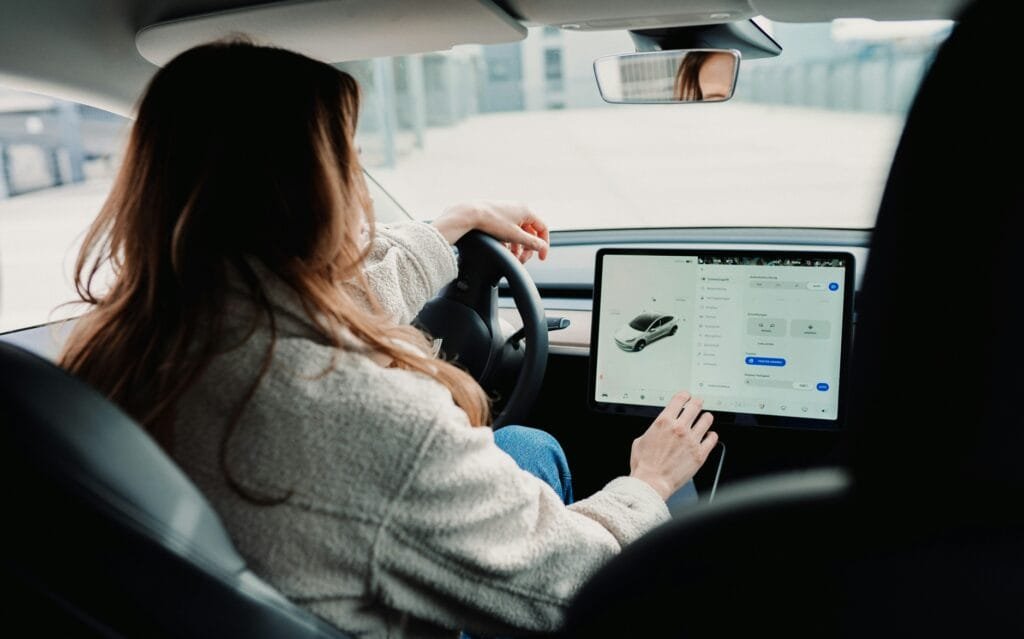
Where Can I Find a Public Charging Station?
Finding a public charging station for your electric vehicle is easier than you think. Here are some quick tips:
- Use an App: There are apps designed to show you the closest charging points, their availability, and sometimes even the charging speed.
- Check Maps: Your car’s navigation system or your smartphone’s map app often includes the locations of public charging stations.
- Look for Signs: Keep an eye out for EV charging signs at parking lots.
Many public places now offer charging stations. You’ll commonly find them at shopping malls, hotels, supermarkets, restaurants and cafes, and public parking areas. If you’re going on a long trip, plan your stops ahead of time.

Public EV Charging Levels
There are three distinct charging levels that you can find when charging your vehicle in public, which include level one, level two, and level three charging stations. Each station varies in charging times and capabilities. Here’s a breakdown of these three levels of charging:
Level 2 Charger
When you charge your EV for one hour with a level 2 charger, you can get around 10-75 miles of additional range. This is the most common charger at a public charging station. You should be able to fully charge your vehicle in around four to six hours, which makes it possible to gain a full charge overnight.
Level 3 Charger
Level three public chargers are usually known as Direct Current Fast Chargers (DCFC). This is currently the fastest EV charging solution around. While your vehicle is plugged into a level three charger, it will convert AC to DC, which ensures that your vehicle’s battery will receive quicker power delivery. It’s possible to charge an EV in just 20-30 minutes with this type of charger.
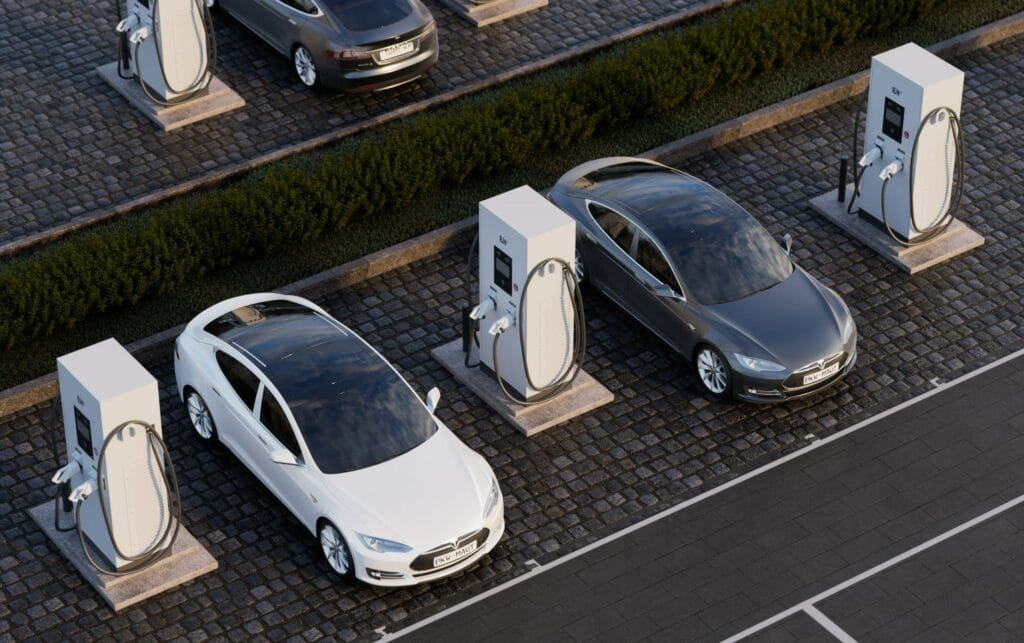
How to Choose the Right EV Public Charging Station
To identify the right EV public charging station for your vehicle, it’s important to determine your preferred charger level as well as the type of connector that works with your vehicle. You should avoid charging your vehicle at a level one charging station because of how slow they are. A level three charger is the way to charge your vehicle quickly.
Keep in mind, however, that a DCFC station can only be effective if the state of charge for your battery is lower than 80%. Charging times become significantly slower once the charge is higher than 80%. You could switch to a level two charger for the final 20%. Level two chargers are less expensive, which allows you to effectively control how much you spend when charging your vehicle.
The most common type of connector is currently the SAE J1772 plug. Every EV in the U.S. and Canada can use this plug. Tesla vehicles are available with an adapter for the J1772 connector as well. For level three connectors, the most common options include SAE and CHAdeMO connectors. Identify which port is connected to your vehicle to determine which connector you require.
How Long Does EV Charging Take at a Public Charging Station?
Each charging level has average charging times that you should take into account before you start using one. Keep in mind that numerous factors can impact your charging time, which include the current charge level, the health of the battery, and the vehicle’s battery size.
Charging time for a level two charging station takes about 5-11 hours to give you enough power to drive 125 miles. For level three charging stations, the charging times drop to around 30 minutes to an hour.
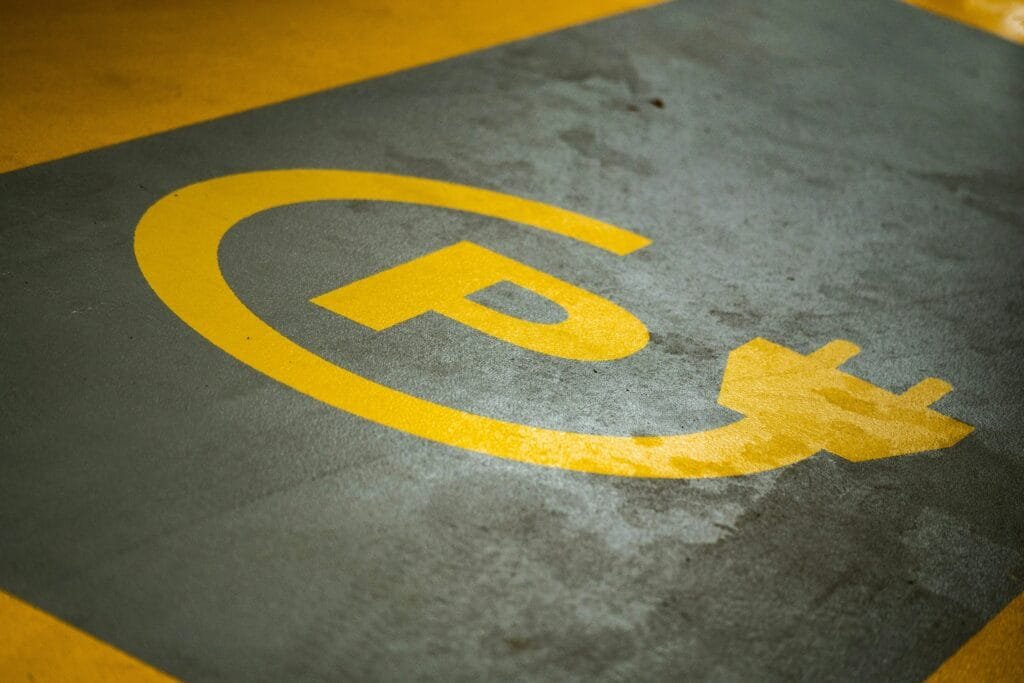
Cost of EV Public Charging Stations
Since each charging level provides a much different charging time for your EV, you can expect to pay higher costs for shorter charging times. The EV public charging station cost is based on kWh of electricity. If you use a level one charger, your costs should be around $0.15-$0.20 per kWh. A level two charger costs around $0.20-$0.25 per kWh. When you opt for a level three charger, the cost can range from $0.40-$0.60 per kWh.
Conclusion
As electric vehicles continue to gain popularity, understanding how to effectively use public charging stations becomes essential. The key is to choose the right charger level and connector type for your EV. Level two and three chargers are the most practical choices, with level three being ideal for rapid charging, especially when your battery is below 80%.
Also, be aware of the costs associated with different charging levels, as faster charging often comes at a higher price. Learn more about the charging solutions we offer at En Plus.
FAQs for Home EV Charging Solution
- How do home chargers work?
Home chargers, typically Level 2 AC chargers, are designed for residential use and operate by connecting to a standard 240-volt electrical supply. They use alternating current (AC) power from the electrical grid, which is converted into the direct current (DC) needed to charge an electric vehicle (EV). This conversion from AC to DC is typically done within the EV itself through the vehicle’s onboard charger.
The advantages of home chargers include the convenience of charging your EV overnight or whenever it’s parked at home, ensuring that your vehicle is ready for daily use. Additionally, home chargers are cost-effective in the long run as they typically offer lower charging rates than public charging stations.
Home chargers require a standard 240-volt electrical supply, similar to what is used for large household appliances like clothes dryers and ovens. The output power of Level 2 home chargers typically ranges from 3.3 kW to 7.7 kW or higher, depending on the charger’s specifications and the EV’s compatibility. This power level determines the charging speed, with higher power chargers providing faster charging.
- What types of electric vehicles can be charged with EV home chargers?
Home chargers, typically Level 2 AC chargers, are designed for residential use and operate by connecting to a standard 240-volt electrical supply. They use alternating current (AC) power from the electrical grid, which is converted into the direct current (DC) needed to charge an electric vehicle (EV). This conversion from AC to DC is typically done within the EV itself through the vehicle’s onboard charger.
The advantages of home chargers include the convenience of charging your EV overnight or whenever it’s parked at home, ensuring that your vehicle is ready for daily use. Additionally, home chargers are cost-effective in the long run as they typically offer lower charging rates than public charging stations.
Home chargers require a standard 240-volt electrical supply, similar to what is used for large household appliances like clothes dryers and ovens. The output power of Level 2 home chargers typically ranges from 3.3 kW to 7.7 kW or higher, depending on the charger’s specifications and the EV’s compatibility. This power level determines the charging speed, with higher power chargers providing faster charging.
- Can users monitor the charging sessions remotely?
Home chargers, typically Level 2 AC chargers, are designed for residential use and operate by connecting to a standard 240-volt electrical supply. They use alternating current (AC) power from the electrical grid, which is converted into the direct current (DC) needed to charge an electric vehicle (EV). This conversion from AC to DC is typically done within the EV itself through the vehicle’s onboard charger.
The advantages of home chargers include the convenience of charging your EV overnight or whenever it’s parked at home, ensuring that your vehicle is ready for daily use. Additionally, home chargers are cost-effective in the long run as they typically offer lower charging rates than public charging stations.
Home chargers require a standard 240-volt electrical supply, similar to what is used for large household appliances like clothes dryers and ovens. The output power of Level 2 home chargers typically ranges from 3.3 kW to 7.7 kW or higher, depending on the charger’s specifications and the EV’s compatibility. This power level determines the charging speed, with higher power chargers providing faster charging.
Guidelines for Your EV Charger
Find the right EV charging solution for your business
Let us help you find the solution to grow your profitable business.










